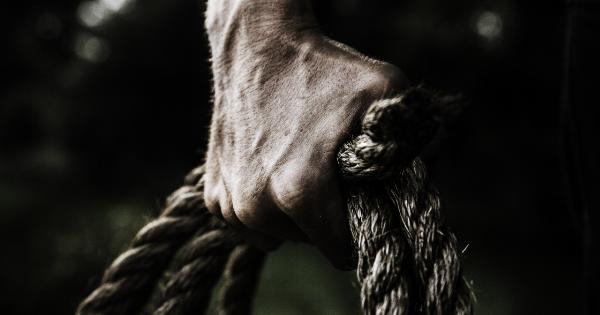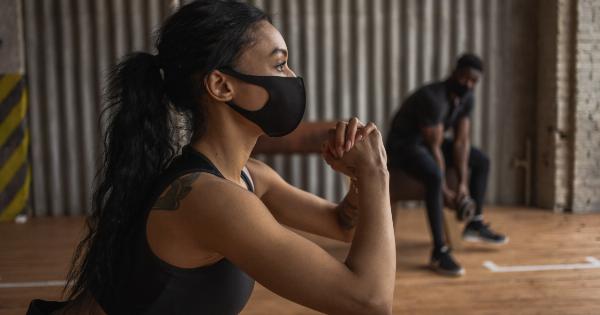Koronevas is a viral infection that has been causing alarm around the world since its outbreak in December 2019. What started as a localized outbreak in Wuhan, China, has now spread to over 190 countries worldwide.
The World Health Organization (WHO) has declared it a global pandemic, and millions of people have been infected with the disease, with hundreds of thousands of deaths recorded so far. The Koronevas virus has brought the world to its knees, causing widespread panic, and resulting in significant social and economic disruptions.
What is Koronevas?
Koronevas, also referred to as SARS-CoV-2, is a novel coronavirus that belongs to the same family of viruses as the SARS (Severe Acute Respiratory Syndrome) and MERS (Middle East Respiratory Syndrome) viruses.
It is a zoonotic virus, meaning it is transmitted from animals to humans. Scientists believe that the virus was initially transmitted to humans from bats, possibly through an intermediate host such as a civet cat or pangolin.
How is Koronevas Spread?
Koronevas is primarily spread through respiratory droplets, such as when an infected person coughs or sneezes. The droplets can land on surfaces and objects, where the virus can survive for several hours to days.
When a person touches an infected surface and then touches their face, mouth, or nose, they can contract the virus. It is also possible for a person to get infected by inhaling the virus in the air, especially in indoor areas with poor ventilation.
Symptoms of Koronevas
The symptoms of Koronevas infection can range from mild to severe, and some people may not experience any symptoms at all. The most common symptoms include:.
- Fever or chills
- Cough
- Shortness of breath or difficulty breathing
- Fatigue
- Muscle or body aches
- Headache
- New loss of taste or smell
- Sore throat
- Congestion or runny nose
- Nausea or vomiting
- Diarrhea
The symptoms of Koronevas can take anywhere from 2-14 days to appear after exposure to the virus.
Some people may also experience more severe symptoms, such as difficulty breathing, chest pain, confusion, bluish lips or face, and should seek medical help immediately.
Precautions to take against Koronevas
There are several measures that people can take to help prevent the spread of Koronevas:.
- Wear a mask that covers your mouth and nose in public places and when around people from outside your household
- Stay at least 6 feet away from people who are sick
- Avoid close contact with people who are sick
- Wash your hands frequently with soap and water for at least 20 seconds or use a hand sanitizer that contains at least 60% alcohol
- Cover your coughs and sneezes with a tissue or the inside of your elbow
- Clean and disinfect frequently touched surfaces daily
- Stay home if you are sick or have been in contact with someone who has tested positive for the virus.
The Grim Reality of Koronevas
The impact of Koronevas has been devastating, both in terms of the human toll and economic losses. The virus has disrupted almost every aspect of our lives, causing widespread confusion, fear, and uncertainty.
Healthcare systems in many countries have been overwhelmed, with shortages of medical equipment, supplies, and personnel. Millions of people have lost their jobs or livelihoods, and businesses of all sizes have been forced to close down.
The pandemic has also highlighted the existing disparities and inequalities in our societies.
Certain groups, such as the elderly, people with pre-existing medical conditions, and those from low-income backgrounds, have been disproportionately affected by the virus. The pandemic has also intensified discrimination and prejudice towards certain ethnic and racial groups, leading to further social divisions.
How can we stop Koronevas?
Stopping Koronevas will require a collective effort from governments, institutions, and individuals. There is currently no cure or vaccine for the virus, which makes prevention and control measures crucial.
We need to ensure that people have access to accurate information about the virus, and that there are adequate resources and funding for testing and tracing, treatment, and protective equipment.
As individuals, we can all play a role in slowing the spread of Koronevas by following public health guidelines and recommendations, practicing good hygiene, and supporting our communities in any way we can. Isolation, quarantine, and social distancing measures may be challenging, but they are necessary to protect ourselves and others from the virus.
We must also continue to support research efforts to find a cure and vaccine against Koronevas, and to address the underlying social and economic factors that have contributed to its spread.
Conclusion
The Koronevas pandemic has been a stark reminder of the fragility of our societies and the importance of working together to overcome global challenges.
We have seen communities come together to support each other, and healthcare workers risking their lives to save others. The pandemic has also forced us to rethink our priorities and the way we live our lives, and to strive for a more equitable and resilient world.
Let us continue to take the necessary precautions against Koronevas and support those who have been affected by the virus.































